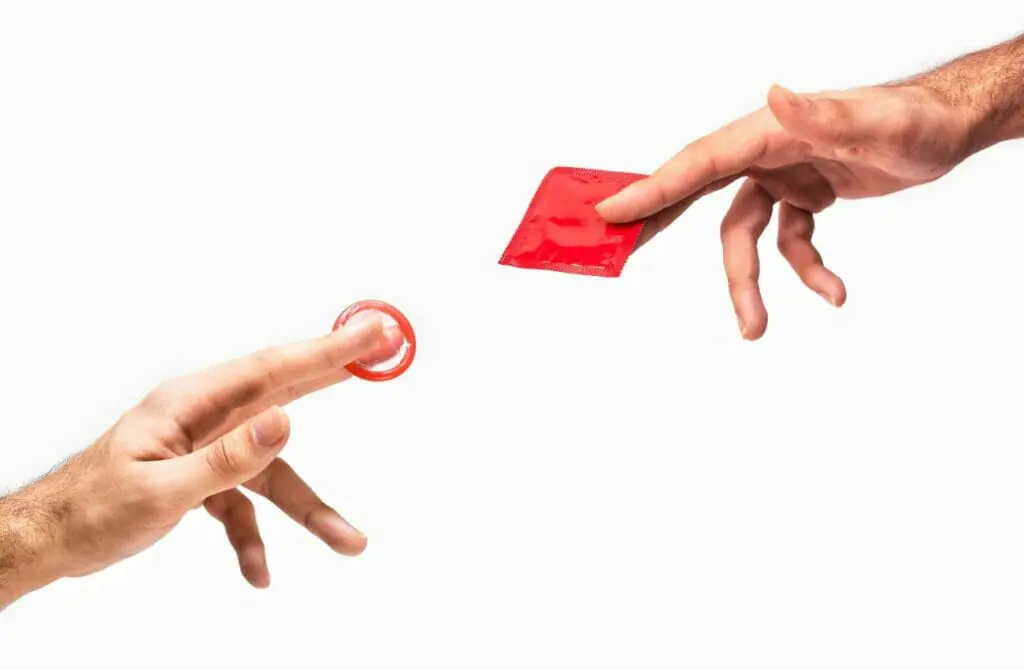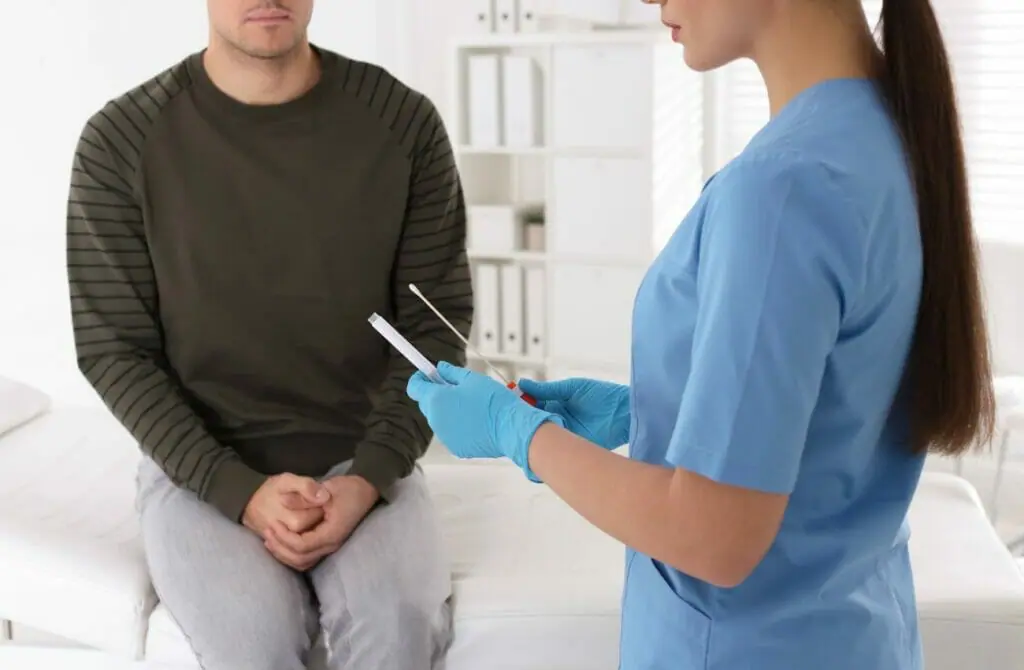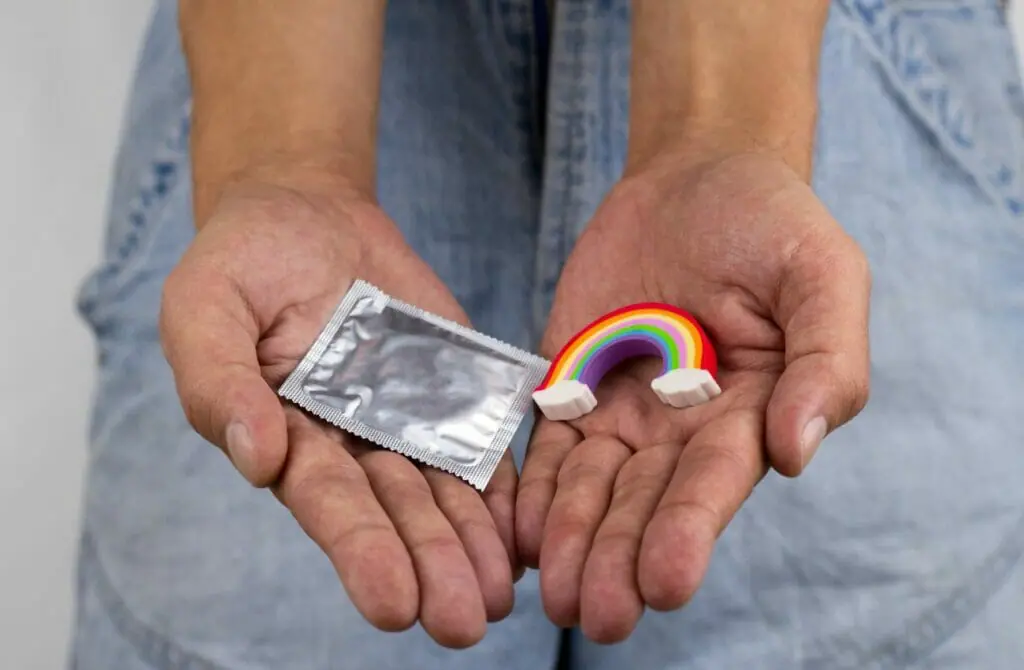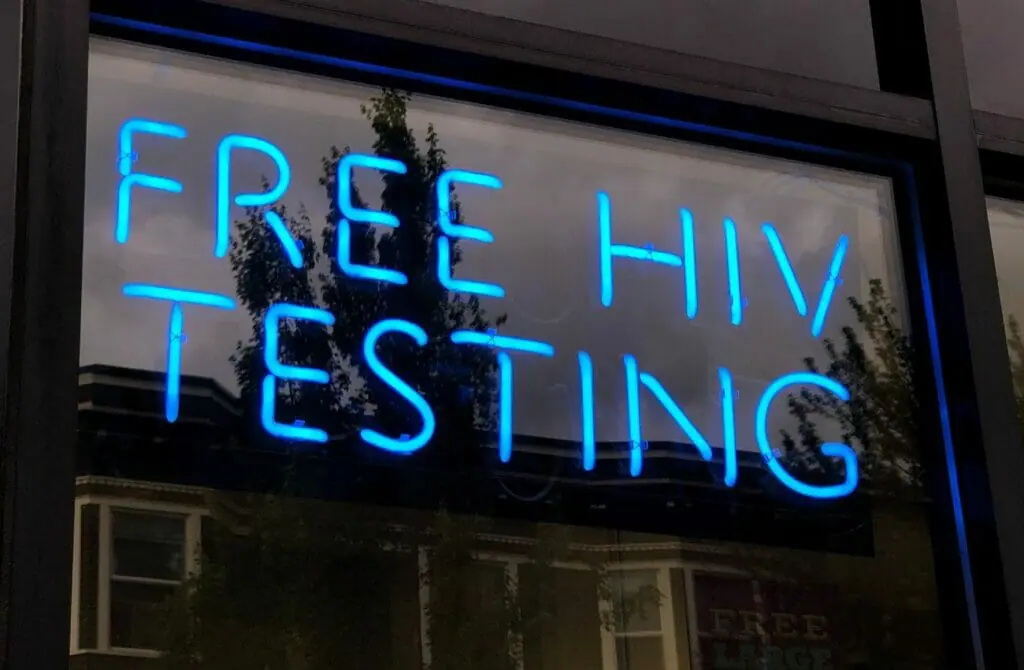Everyone wants to live their best life (unless you’re a miserable pessimist whose presence soaks the joy out of life wherever you go, naturally). And for a lot of guys, it means waking up in a different bed every night or even your bed, but with a different guy. If you’ve got your nose all wrinkled and your lips curled in reading this, then you need to loosen up.
This isn’t the 1800s, baby.
Nowadays, most people know there’s nothing wrong with sowing your wild oats, so long as you do it safely. Historically, safe sex is a particularly important practice in the gay community. After the discovery of HIV in 1981, it quickly became associated with the gay community, and the decades that followed were marked by tragedy, loss and discrimination as the gay community and the queer community at large were largely abandoned to their fates.
Millions of loved ones were lost to the disease before research began into the virus and how to prevent death from it. However, before it became a matter of national and then global concern, it was thought to be particularly to gay men and was even named the Gay-Related Immunodeficiency. After it was discovered that it could be transmitted by sexual interactions, gay publications and some other organizations began to print and distribute articles and pamphlets detailing how to practice safe sex to avoid getting the disease.

Although HIV has since been proven to not be exclusive to the gay community, the gay safe sex practices initiated during that period still largely remain today, along with the awareness that you can save yourself from the stress that comes with STDS in general by practicing safe sex. After all, hoeing around will not be a lot of fun if every twinge in your ass or spot on your dick gets your heart racing (not in a good way either) and leaves you wondering whether you’ve finally gotten it, with ‘it’ being anything from a nasty case of public lice to herpes to even syphilis.
It takes nothing to wear a condom, which is one of the most common and effective man’s of protection for both gay and straight people, so what other excuse do you have? There are also several other ways by which we can practice safe sex, and don’t worry; abstinence doesn’t feature on this list.
We know we’ll have better luck asking you to stick your dick into the washing machine and put it on spin for a couple of seconds…


In this article we will cover...
1. Use A Condom
We’d be doing you and ourselves a disservice if we didn’t include this on our list of gay safe sex practices from the get-go. A lot of people might not think it’s necessary because of how popular a condom is, but we don’t agree. It’s always important to remind people how something as simple as a latex sheath over your dick can protect you from so much. There are even internal condoms that the bottom (the partner getting penetrated) can put on.
One of the main advantages of the condom is that it is constantly changing and improving. While the earliest condoms must have been thick and probably reduced sensation, new condom types, sizes and even brands develop every day. It is practically impossible not to find one that suits you.
There are also several tutorials on how to put on a condom. It is taught everywhere, from high school to YouTube, so you should probably have learned it at some point in time. If you haven’t yet, you can look up some videos or even ask a friend.
You can explore different flavors and even textures. Try a ribbed one for extra sensation or one with a little bit of menthol to add a little heat to the mix.

2. Maintain Good Hygiene
Let’s face it, the basic idea of sex is dirty and sloppy. It’s basically rubbing your bodies over each other and exchanging as much fluid as you can. If you’re trying to keep things as safe as possible, it’s important to ensure that all partners involved are clean because dirt means disease. If possible, take a shower beforehand, and wash your hands. Make sure to clean out any dirt from under your fingernails. Wash your ass and public area as well.
If you’re bottoming, i.e., getting penetrated, wash your anal sphincter a few inches deeper. We don’t advise douching every single time you’re going to have gay anal sex, but if your diet hasn’t really been optimal and you feel like the chances of an accident happening are high, douche with water and a low-pressure device to avoid injuries. Do it several hours before your appointment to avoid infection from bruised walls.
Apart from bodily hygiene, keep your sheets, pillowcases, sex toys and everything else you use during sex clean. Make sure the condom you use is unopened, and for the love of the gay gods, throw out that tube of lube you’ve had for longer than you can remember.

3. Get Tested Regularly
As careful as you think you are, you cannot rule out chances of infection. Several STIs, such as HIV, Hepatitis B, C, D and E etc., can be transmitted by blood transfusions and even by injury by infected objects or items. Because of this, if you have an active sex life, it is imperative that you get regularly tested as part of your gay safe sex practices, not just for STIs but for different types of cancers.
Keep a reminder of some sort, like a marking on a physical calendar or a phone reminder, so that you can remember to visit your physician. Gay hook-up apps like Grindr even have a feature to set the last time tested and can remind you it’s time to go again.
As an added point, you should also stay up to date with your vaccines. If one or more of your partners are or may be HIV-Positive, consider going on PreP (Pre-exposure prophylaxis), or at least ask your physician about it. Drugs like PreP/Truvada can be taken beforehand to avoid contracting HIV in the event of exposure to the virus. If you suspect you’ve been exposed to the HIV virus without any form of protection, visit the nearest health center to ask for PeP (Post-exposure prophylaxis). Take regular STD tests, and if any come back positive, commence treatment as soon as possible.
It is also important that any partners or partners that you have are also up-to-date with their sexual health testing. Communication about testing will make sex more pleasurable, as well as easier, as comfort and intimacy will be much more improved by honesty.

4. Stay Up-To-Date With Research
For better or worse, there is a lot of research into the sexual practices of gay men. We don’t really know what that is; maybe it’s to make up for all the years that the community was sidelined, but whatever the reason, there is a lot of new information about gay men and how to have safer sex.
New research reveals new methods, tests and even drugs that can be used for optimal sexual health. Try as much as possible to be up-to-date with this research, and follow the laid-down practices that are prescribed by these professionals, up to and including tests, vaccines, barriers, prophylaxes, etc.

5. Communication
Communication, in general, can be great for any relationship, even a sexual one that may not necessarily be romantic. It is important for your sexual health and safety that you communicate with any sexual partner you have at any point in time about your sexual health history, sexual preferences, sexual practices, etc.
Both short-term and long-term partners have a right to any information that may relate to their own health. Asides from medical history, things like usage of sex toys, hygiene habits, conditions of other sexual partners, etc., should be disclosed to the extent that they do not violate privacy.

6. Practise Safe Sex Methods
Sexual intercourse spans a wide range of activities, and it is not necessarily restricted to penetration. In that same vein, sex can be enjoyed, even when there is no penetration. Penetrative sex also greatly increases the risk of contracting certain STIs. People who have tested positive for sexually-transmitted infections can still, to some extent, enjoy sexual activities.
Acts such as mutual maturation, stimulating your partner’s sexual organs through clothes, and even phone sex or virtual sex can be enjoyed with little-to-no risk of contracting an STI. Discuss this with your partners to see if they are open to it. During sexual intercourse, there are also many precautions you and your partners can take to prevent the transmission of disease if one or both of you has tested positive for any. For instance, you should use only water-based lubricants for latex condoms. This is because oil-fired lubricants can cause condoms to break. Also, store your condoms in a cool, dry place, away from direct sunlight.
Contrary to popular belief, condoms are not kept in wallets for long periods at a time, as they can be damaged by friction or by random items in the wallet. Also, be sure to examine your condoms thoroughly to see if there is any breakage or discoloration, as this may mean they have been compromised. Also, the whole public or genital area can be covered with barriers such as dental dams, plastic wraps or condoms that have been split.
In cases of HIV-positive partners, undetectable = untransmittable (U=U) which means that people with HIV who accomplish and maintain an undetectable viral load—the amount of HIV in the blood—by taking antiretroviral therapy (ART) daily as prescribed cannot sexually transmit the virus to others.
That is to say, people cannot pass HIV through sex when they have undetectable levels of HIV, and it is actually safer to have sex with them than someone who might be unaware of their status. This prevention method is estimated to be 100% effective as long as the person living with HIV takes their medication as prescribed and gets and stays undetectable.
It’s critical to realize that simply because a person’s viral load cannot be detected, you should not ignore prudence. Even if you have no risk of contracting HIV if your partner is undetectable, you should use PrEP if it helps you feel safer or if you think you might date someone else.
PrEP can be up to 99% effective at preventing HIV transmission when used as prescribed by a doctor. Therefore, even if your lover is now undetectable, it can provide you peace of mind.

7. Avoid Substance Abuse
A few extra drinks, a joint or two of weed, and maybe quarter tablets of some of the good stuff your friends have been raving about come with the YOLO territory, and partying it up and living dangerously does not always have terrible consequences, but a certain amount of alcohol and drugs can break down inhibitions, thus leading you to make decisions that you may not necessarily make sober.
If you find yourself fumbling drunkenly with a fly in the middle of a dark passageway while cruising, it’s not very likely that you’ll stop to put on a condom or ask about your partner’s testing history. Try to avoid sexual situations under the influence, as even the ability to make informed and enthusiastic consent may be impaired. Also, abusing injectable drugs can increase the risk of unknowingly acquiring blood-borne STIs.

8. See A Doctor Regularly
Visits to the doctor are not necessarily limited to when you have a test to take or when you’ve got a suspicious bump or bruise that you think needs to be checked out. You should also schedule regular doctor’s visits just to talk about your health and medical situation and get a clean bill of health. That mole you think you’ve had since childhood may turn out to be a cause for concern.
It’s best that you get evaluated by people who know the signs to look for in order to be certain that there’s actually no cause for concern in terms of your health.

9. Go To Therapy
Even outside of having multiple sexual partners, it is important to receive mental health analysis and help. It’s just as important as physical health checkups regularly. Sexual relationships can have a lot of effects on mental health, and although it’s not a hard-and-fast rule, it’s certainly helpful to attend regular therapy sessions.
A well-balanced mental state or required to make the best decisions for your sexual life. Decisions about sexual partners, sexual practices etc., are best made in a well-balanced mental state.

10. Seek Treatment For Any Diagnosed Conditions
We’ve talked a lot about how to prevent infections and diseases, but there are also gay men who are living with diseases that can be serially transmitted. Luckily, many of these diseases are curable, and even the ones that are not curable can still be managed to a great extent, such that the patients can live a long and normal life and, more importantly, have a healthy and active sex life.
So if you have or you suspect you have any of these diseases, then you should visit a doctor for a possible diagnosis and treatment for it. Follow your doctor’s guidelines with regards to your sex life, and chances are you’ll be able to enjoy sex just as much as you did prior to the diagnosis.

11. Know your Boundaries
If you have multiple sexual partners, you will meet a wide range of people. Some of them may be on board with every safe sex practice you suggest, while others may be reluctant for some reason.
Regardless of the opinion your partners or potential partners hold, you should have a series of immovable boundaries. For example, if your personal rule is that you never penetrate a partner without wearing a condom, then you should not change that rule. If you come across a partner that refuses to accept your rule, then sexual intercourse between the two of you should not take place. Defining these rules will make practicing safe sex easier.

Safe sex, in our opinion, is more than just putting on a condom when you’re having sex. It’s a lifestyle, a series of guidelines that you follow to considerably reduce your risk of catching an STI via sexual intercourse.
It also doesn’t depend on how many sexual partners you have. After all, your committed partner and boyfriend may be infected with an STI from a previous relationship or affair and pass it on to you. So irrespective of the number of sexual partners you have, your goal is to avoid any disease, injuries or adverse consequences from sex.
With this in mind, make safe sex a habit and a way of life for you, and try to pass the knowledge on to any partners you may have. The community will thank you for it.



